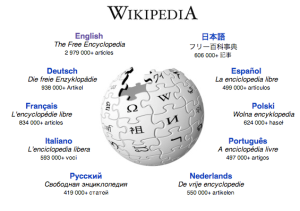 Scientists and researchers who still haven’t considered Wikipedia to be relevant for their academic career or who perhaps disregard Wikipedia for scientific purposes all together, might have to reconsider their point of view. At least they will have to get used to the fact that social media is sneaking its way into the other-wise so stable and non-surprising world of peer-reviewed journals.
Scientists and researchers who still haven’t considered Wikipedia to be relevant for their academic career or who perhaps disregard Wikipedia for scientific purposes all together, might have to reconsider their point of view. At least they will have to get used to the fact that social media is sneaking its way into the other-wise so stable and non-surprising world of peer-reviewed journals.

The Open Access journal PLoS have taken on the task of making science available for everyone to read. In their endeavor to achieve this they have now gone to a new level, and are trying out the combination: peer-reviewed articles + Wikipedia. By mixing the two together, PLoS hopes to meet a new level of interaction between publishers, researchers and the public.
The guinea pig for this experiment is the journal PLoS Computational Biology.
By introducing so-called “Topic Pages”, which are a new article type building on the style of a Wikipedia article, PLoS makes peer-reviewed articles which are published in PLoS Computational Biology available on Wikipedia. The benefits of these Wikipedia style articles are 1) that they will help fill a gap in Wikipedia’s computational biology content; and 2) that the articles will be subject to ongoing review of wikipedians.
A third advantage, highlighted by Bonnie Swoger in a blog post in Scientific American, is that it may play an important role in convincing scientists to take an active role in adding content to Wikipedia, and in using social media for science communication in general. Bonnie Swoger points out that due to the organisation of universities and other research institutions, using time editing Wikipedia, being on Twitter etc. means less time for lab work, field work and scholarly writing. All of which is what matters in an academic career. Scientists therefor refrain from social media (or at least use it as an excuse). The trick of PLoS’ Topics Pages, which turns peer-reviewed articles into Wikipedia entries, makes it possible for researchers not only to produce original published articles, but also to contribute to public knowledge available on Wikipedia, and thereby potentially reaching much wider audiences.
It will be interesting to see how this new concept works out. I could definitely see it as something useful also in public health related research, which due to its public nature is probably even more likely to be found via Wikipedia than topics within computational biology are.
For an example of Topic Pages take a look at the article Circular permutation in protein in the Wikipedia format and the same article in a regular journal format. Both were published in Wikipedia and PLoS Computational Biology at the end of March this year.
Read more about PLoS reflections on the Journal-Wikipedia alliance in this editorial.


